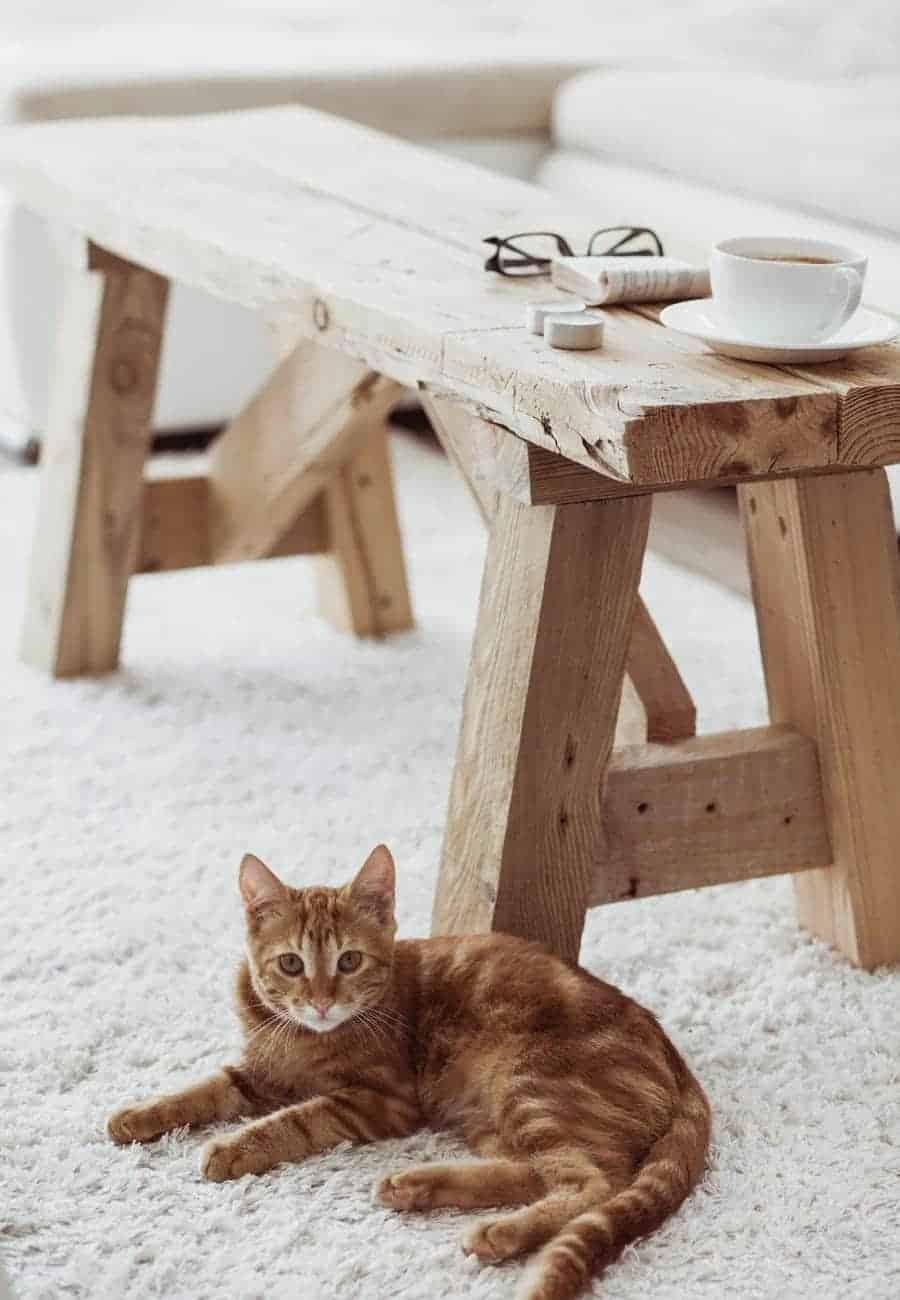Vomiting that occurs occasionally in an otherwise healthy cat is generally not a cause for concern. Vomiting that persists for over 72 hours with or without signs of illness such as appetite loss, depression, lethargy, or diarrhea can indicate a more severe problem and should be addressed. The fluids lost during vomiting result in dehydration which could be potentially life threatening. The food, acids and other material expelled during vomiting can in other cases be lifesaving. Since cats are naturally carnivores, vomiting is a protective reflex used to eliminate bones, for example, after consuming a bird or rodent.
CAUSES
* Hairballs are the most common cause of periodic vomiting.
* Inflammatory Bowel Disease (IBD) is the most common cause of chronic vomiting. Vomiting hairballs daily is often the predominant sign of IBD in cats.
* Eating linear foreign objects – ribbon, tinsel, string are holiday favorites
* Parasites – round worms in kittens can cause vomiting
* Cancer – Mast cell tumors are a type of stomach cancer in cats that cause vomiting which may contain blood. The vomit may be blackish in color with a fowl odor because of the blood.
* Liver disease can result in stomach ulcers
* Chronic kidney failure
* Poisons – aspirin, antifreeze, plants, pesticides, cleaning agents, lead, herbicides, and heavy metals.
* Distemper virus in unvaccinated kittens
What you and your vet can do:
* Withholding food and water for 12 to 24 hours allows the body to recover and controls most mild cases of vomiting.
* Giving food and/or water at this time usually makes vomiting worse.
* Gradually reintroducing small frequent meals several times daily over the next 2-3 days resolves most cases.
COMPLEMENTARY THERAPY
Homeopathic
* Nux Vomica 6c – Use for cats that acts moderately ill and want to be left alone or are hiding. No food 10 minutes before or after treatment.
The dosage is 1 pellet every 4 hours until the signs are gone. Discontinue if cat is not better after 24 hours. Continue up to 5 days if the cat is responding.
* Pulsatilla 6c – Use for cats reluctant to drink. Use same dose as for Nux Vomica.
Herbal
* Chamomile Tea – This herb is soothing and relieves nausea. Use for mild stomach upsets.
Recipe: Pour 1 cup of boiling water over 1 TBSP of the flowers, steep 15 minutes, strain and dilute with an equal amount of water. Give a teaspoon at a time after food and water have already been withheld for the first 12 to 24 hours.
* Note: Peppermint tea also relieves nausea but unlike dogs and people, cats don’t like mint.










Are you familiar with 4 Life Transfer Factor? It is a molecule derived from colostrum boots NK cell activity…..claims good for sick animals i.e. kidney disease ???? any help/input appreciated!
Hi Susan
The transfer factor to the best of my knowledge is colostrum. Colostrum is available from a variety of sources and does help to boost immunity. For pet kidney disease and pet kidney failure, we offer the Kidney Essentials which have proven to be excellent. Please feel free to contact our veterinary office toll free directly if we can help further. Dr Osborne also offers pet health consultations
Best Wishes,
Dr Carol
Toll Free Phone: 866-372-2765
My cat loves to eat mint. He rubs his face in it.